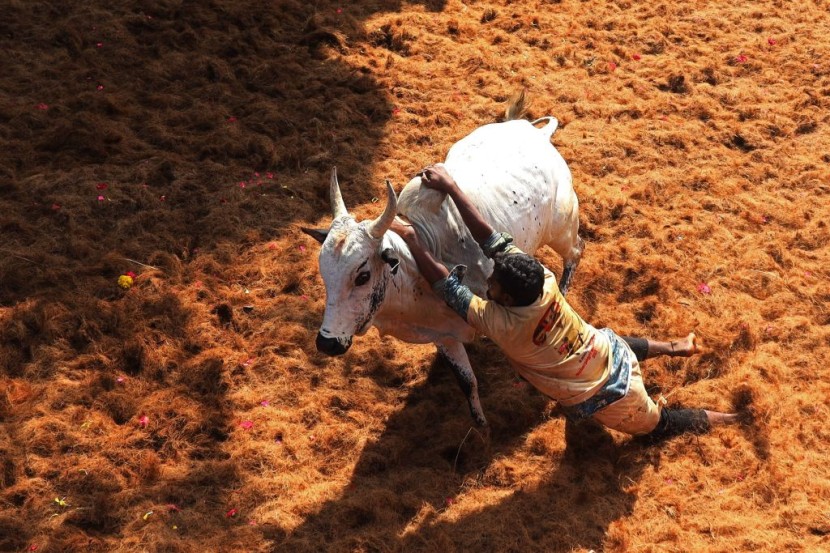The highest court in India has confirmed legislation that permits Jallikattu, an event where bulls are wrestled, which is a disputed festival that is well-liked in the Tamil Nadu region.
In 2006, a court prohibited a certain practice, but in 2017, the state legalized it again with an amendment. However, animal rights organizations, spearheaded by PETA, contested this decision in the highest court.
On Thursday, the Supreme Court announced that the law regarding Jallikattu did not go against the Indian Constitution, according to BBC News. The decision was made by a group of five judges who confirmed that the Tamil Nadu law which safeguards Jallikattu was valid.
The court stated that if the government of a state has recognized Jallikattu as a part of its cultural heritage, then the judiciary cannot have a differing opinion. Additionally, the court rejected petitions that questioned the constitutionality of laws in Maharashtra and Karnataka that allowed bull-taming and bull-racing festivals in those states.
Jallikattu is a sport that has been around for over 2,000 years and is considered one of the oldest sports still played today. It takes place during the Tamil harvest festival of Pongal.
In this sport, a bull is let out of its pen, and the goal is for bullfighters to hold on to the hump of the animal for around 15-20 meters or three jumps to win a prize. If no one is successful, the bull is declared the winner. Unfortunately, many people, including both participants and spectators, have lost their lives or been severely injured in these contests.
What Animal Rights Advocates Have to Say
Animal rights advocates argue that the sport is abusive to animals, while its proponents claim that it is a significant aspect of their cultural legacy.
Additionally, supporters contend that the bulls are well-cared for, and the practice aids in preserving indigenous bull breeds. The Madras High Court in Tamil Nadu initially banned the sport in 2006 after a bull killed a young spectator, followed by the Supreme Court in 2014, which cited animal cruelty as the reason.

In 2017, the Tamil Nadu government allowed the practice of a traditional sport after facing widespread protests. They changed the law to permit the sport, but this decision was opposed by organizations like PETA, who claimed it violated the constitution and was illegal.
The Tamil Nadu government argued in the Supreme Court that Jallikattu is not just a source of entertainment or enjoyment but holds significant cultural, religious, and historical importance.
Read also: India's Supreme Court Could Soon Have Ruling on Same-Sex Marriage Issue
Preserving an Age-Old Tradition
Jallikattu is deeply rooted in Tamil Nadu's history and culture, with evidence of the sport dating back to ancient times. It was traditionally performed during the Pongal festival as a way for farmers to showcase their strength and courage while also selecting the best bulls for breeding purposes.
Bull breeders take great pride in raising strong and healthy animals, specifically for Jallikattu competitions. They invest considerable time, effort, and resources into training these bulls to be agile yet controlled when they are released from their pens.
However, animal rights activists argue that no amount of care can justify subjecting these animals to such stress-inducing situations where they could end up injured or killed by participants or spectators alike. The use of sharp objects like knives tied onto bull horns further exacerbates safety concerns.
Despite continued protests against Jallikattu by animal welfare groups both within India as well as internationally, supporters remain adamant about preserving this age-old tradition.
Many believe that banning it would not only rob them of an integral part of their cultural heritage but also lead to a decline in indigenous bull breeds' populations due to decreased demand among breeders without this outlet for showcasing their prized animals' abilities on public platforms.
Related article: Religious Tensions Escalate in India as Churches and Homes Burn in Violent Attacks








